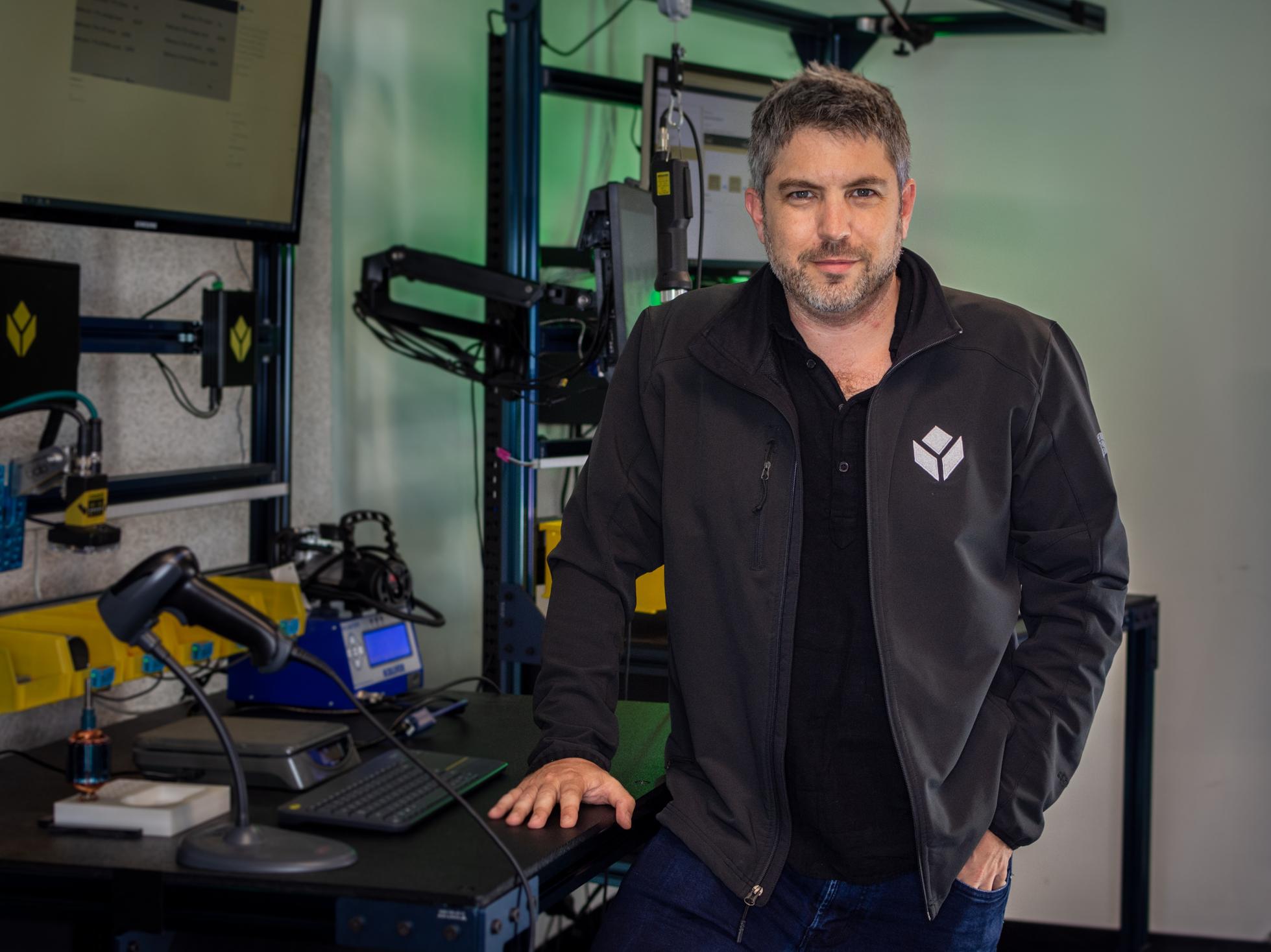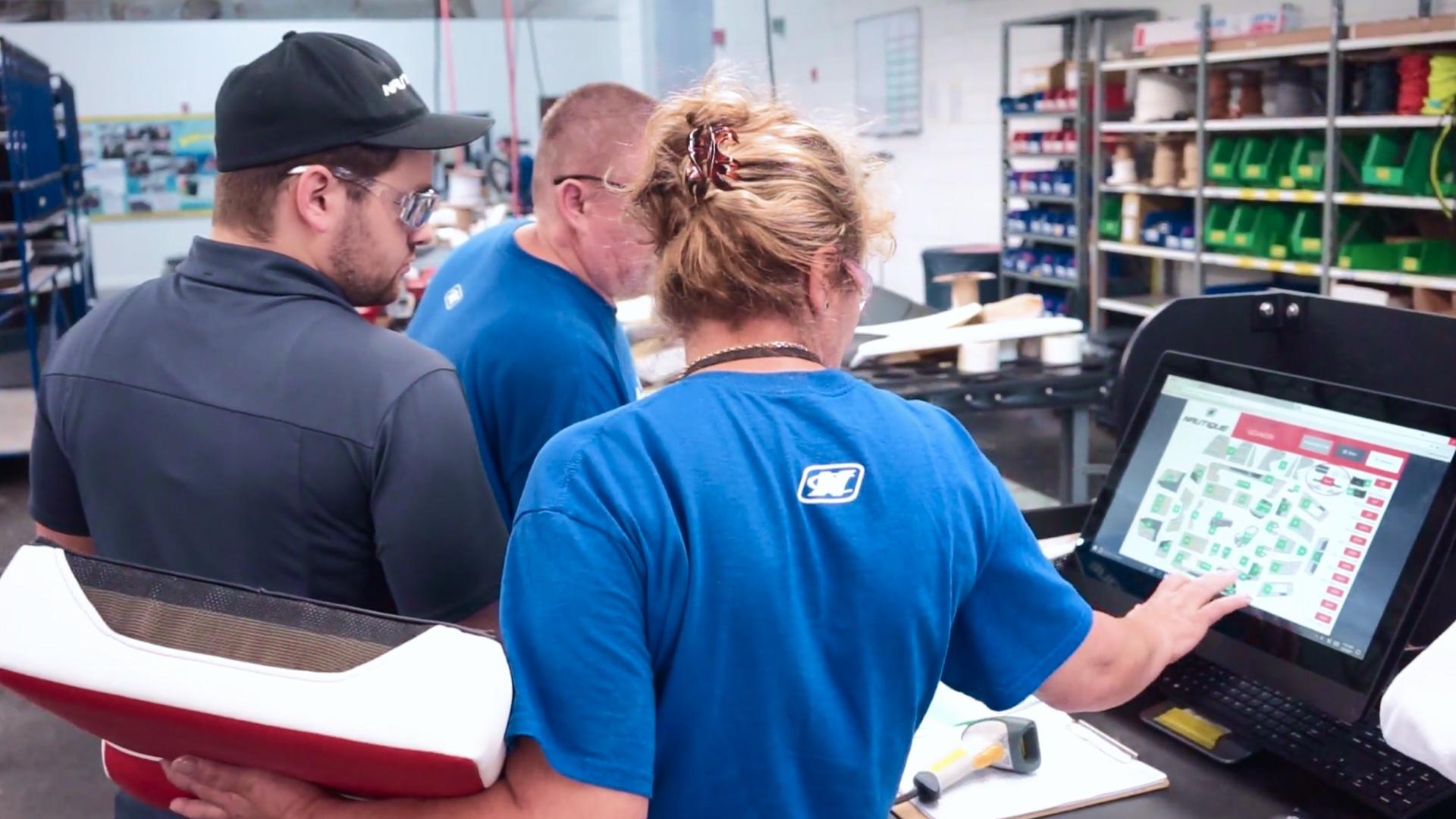
Natan Linder, cofounder and chairman of 3-D printing unicorn Formlabs, founded Tulip seven years ago to give factory workers the same access to digital tools as office workers. In a sign of how far this market has come, Tulip raised $100 million led by Insight Partners, Linder told Forbes.
The new funding, which brings total investment in Tulip to $153 million, values the company at a level approaching $1 billion. “It’s close to a unicorn—it’s a soonicorn,” says Linder. “You know my background, and you know we’re not chasing a unicorn. Getting a company overvalued is not a good thing to do.”
While digital transformation has come readily to banking, sales and marketing, manufacturing, which represents nearly 15% of global GDP, has been the last space to be transformed. But a number of new venture-backed startups have been working to shake up the space, while the pandemic has pushed the needs of factories and their workers to the forefront.
Tulip’s software is designed to increase the productivity of factory teams, similarly to what workflow software from Salesforce and Atlassian have done for sales and engineering. It offers manufacturers an app library, with some 100 templates that users can customize for their own needs. To date, its customers have created more than 20,000 apps, Linder says, in areas like production tracking and workflow. Notably, Salesforce founder Marc Benioff invested in Tulip’s latest funding through his Time Ventures fund.
“When I saw Tulip, I thought, ‘Of course,’” says Hilarie Koplow-McAdams, a venture partner at NEA (which first invested in Tulip in 2017) and former president of Salesforce.com. “Here’s an industry that people have not been thinking about from the perspective of how to make it easier for the people at the front lines to do their work.”
“I’m at the point where I’m not doing this for incremental money. I am not going to have a bigger idea than this.”
Linder, who’s 43, was born in Israel and worked as general manager of Samsung’s electronics R&D center there before moving to the United States. After arriving in Boston, he spent time as a designer for Rethink Robotics, the pioneering robotics company founded by Rodney Brooks that has since shut down. Then, while at MIT Media Lab, he met Maxim Lobovsky and David Cranor, and they founded Formlabs in 2011. Linder remains chairman of Formlabs, which raised $150 million earlier this year, doubling its valuation to $2 billion. (“I raised one after the other,” says Linder, who recently became a U.S. citizen. “Now you understand why I’m exhausted.”)
In 2014, Linder, who has a Ph.D. from MIT Media Lab’s Fluid Interfaces group, teamed up with Rony Kubat, who has a Ph.D. in computer science from MIT, to start Tulip Interfaces with the hopes of fixing what he saw as the problems in manufacturing. “We are disrupting this ancient category, and for me this is a very personal thing,” Linder says.
Tulip’s customers include dental products maker Dentsply, forklift manufacturer Terex, motorboat company Nautique and numerous others in more than 35 countries. These firms use its software to increase their yield, improve their quality and make their manufacturing processes better. At Nautique, for example, Tulip offered increased production visibility into a complex manufacturing operation that involved 400 workers producing a dozen high-end customized motorboats on one assembly line each day. “Tulip is opening up a long tail of use cases that were perceived as too specific or too niche for traditional solutions,” notes Peter Sobiloff, managing director at Insight, who will join Tulip’s board.

Since its launch, Tulip has helped its customers track more than 140 million previously untracked production processes and deployed its software at more than 300 work sites. While automation giants like Rockwell and Honeywell are moving into software and giant software companies like Oracle and SAP are getting into manufacturing, Linder argues that Tulip’s focus gives it an edge. “Thinking of software as an afterthought because you want to sell automation is wrong,” he says. “And selling software that doesn’t understand the machine shop is wrong.”
With the new funds, Tulip intends to expand its existing operations in Boston, Munich and Budapest, and to open a new outpost in the Asia-Pacific region in early 2022. It also plans to invest in new product features to make customer workflows easier. “I’m at the point where I’m not doing this for incremental money,” Linder says. “I am not going to have a bigger idea than this.”







